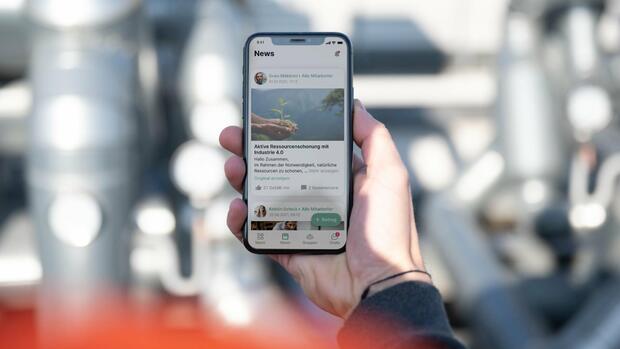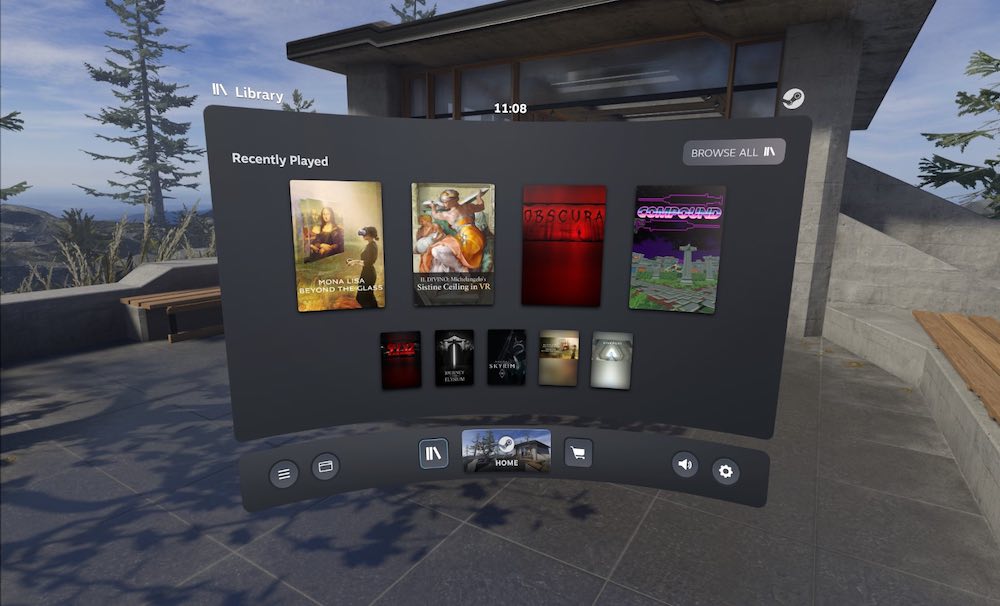Stuttgart Digitalization is a sensitive topic in many industrial groups: it divides the workforce into office workers and those in production, trade or service who do not have direct access to a computer at work. They not only feel excluded from the topic of home office, but often also cut off from the flow of information in the company.
The technology group Bosch wants to change this and is introducing the platform of the Stuttgart-based start-up Flip for 100,000 operationally active employees worldwide. “It is our biggest industrial customer to date,” founder Benedikt Ilg tells Handelsblatt.
The almost five-year-old company already has more than 300 customers, including McDonald’s Germany, Porsche, Mahle, Rewe, Rossmann. Companies pay a monthly amount per employee for using the app. Via the platform, employees can connect digitally with their own organization on their private smartphone with just two clicks or can also be reached by their employer.
“The app has a personalized news feed, individual and group chats as well as additional functionalities such as task management or shift and vacation planning,” says Ilg. In later versions, travel expenses and expense reports will also be possible on a mobile basis.
The new Head of Bosch Digital, Tanja Rückert, explained that the involvement of industrial employees in the digital transformation had been a “matter of the heart”.
Bosch carefully prepares software decisions
For the world’s largest automotive supplier, Flip is building a comprehensive employee platform for manufacturing and logistics employees that can be integrated into the existing IT landscape. After a pilot phase this year, the Group is rolling out the “My Bosch App” in its production network. The service should be available to all interested works by the end of 2025.
Flip Management Team
From left to right: Giacomo Kenner (Co-founder, CPO), Ann Kathrin Stärkel (CMO), Benedikt Ilg (Founder, CEO), Georg Renz (CFO)
(Photo: Flip)
Bosch is known for very careful preparation of software decisions. Especially in sensitive personnel matters, nothing is left to chance, even if it takes longer. “We have also been abroad to several plants and, together with the local employees, have adapted our system to their specific needs,” says founder Ilg.
The high effort is necessary. Because systems like Flip’s would only be accepted if they are self-explanatory, the individual employee has a benefit and they are not time-wasters. “We have a usage rate of over 80 percent across all our customers,” says Ann Kathrin Stärkel, Flip’s head of growth. This is very high and important for the success of the start-up.
Sensitive issue of security: Flip comes to private smartphones
According to Ilg, the translation function for 40 languages is particularly important for companies with diverse workforces. At the push of a button, messages are translated into the native language.
Since the app is installed on the employees’ private devices, the issue of security is extremely relevant. “Our system is GDPR-compliant and secure,” Ilg explains. This is also important for acceptance. “Flip is not about monitoring the employees,” says the founder.
>> Read also: Feeling of belonging via app – How Flip digitizes communication with employees
Apps such as WhatsApp, Facebook or Telegram, which are installed on private smartphones, cannot be used in the corporate environment due to data protection. Flip is entering this gap – but numerous competitors such as Acuvate, Blink, DaysToHappy, Quiply, Workjam or Workstream are also active in the field.
The potential seems to be there: Gartner’s market researchers estimate the number of employees working in production, field service or service business at 2.7 billion worldwide. This is more than twice as many as those who work at the PC in the office.
According to Ilg’s vision, the offer is to become much more extensive and, in addition to shift schedules, holiday requests, sick leave, company news and other information, will also include external apps.
Minister of Economic Affairs Nicole Hoffmeister-Kraut
“We have to use all the levers of securing skilled workers.“
(Photo: Flip)
A few days ago, the Baden-Württemberg Minister of Economic Affairs Nicole Hoffmeister-Kraut (CDU) visited the Stuttgart start-up. Journalists were not there; the minister wanted to get an undisturbed picture of the cooperation between Flip and Bosch. “We have to use all the levers of securing skilled workers. This includes innovative digital solutions, such as Flip offers“” the ministers said.
For Flip, which now employs more than 160 people throughout Europe, the order is particularly important. After all, Bosch is the largest industrial group in the region, along with Mercedes-Benz.
Unlike in Berlin, for example, the Stuttgart start-up scene is characterized by so-called B2B companies. So these are not food delivery services or partner exchanges, but rather platforms through which corporate customers can handle their material purchasing, spare parts business or brokering of production capacities.
Investors put over 30 million euros in Flip
Since its foundation in 2018, the Flip founders have been able to collect far more than 30 million euros. Today, the company is one of the fastest growing start-ups in Germany. Flip does not mention sales and earnings figures. “We are growing very strongly,” says Ilg nur. There are also sufficient funds from the financing round.
“Since we operate in a Swabian way, our money is still enough for a long time,” explains the founder. “There will only be a next round if there is an expansion step, for example to the USA.“
Established top managers also believe in the business idea of the founders. In addition to Matthias Müller, the business angels also include legendary consultant Roland Berger, former Daimler Executive Kurt Lauk and former BASF CEO Jürgen Hambrecht. The institutional investors include Cavalry Ventures, LEA Partners, the Berlin-based fund HV Capital and Notion Capital from London.
More: Change of strategy – Bosch now sells software for driver assistance systems separately









